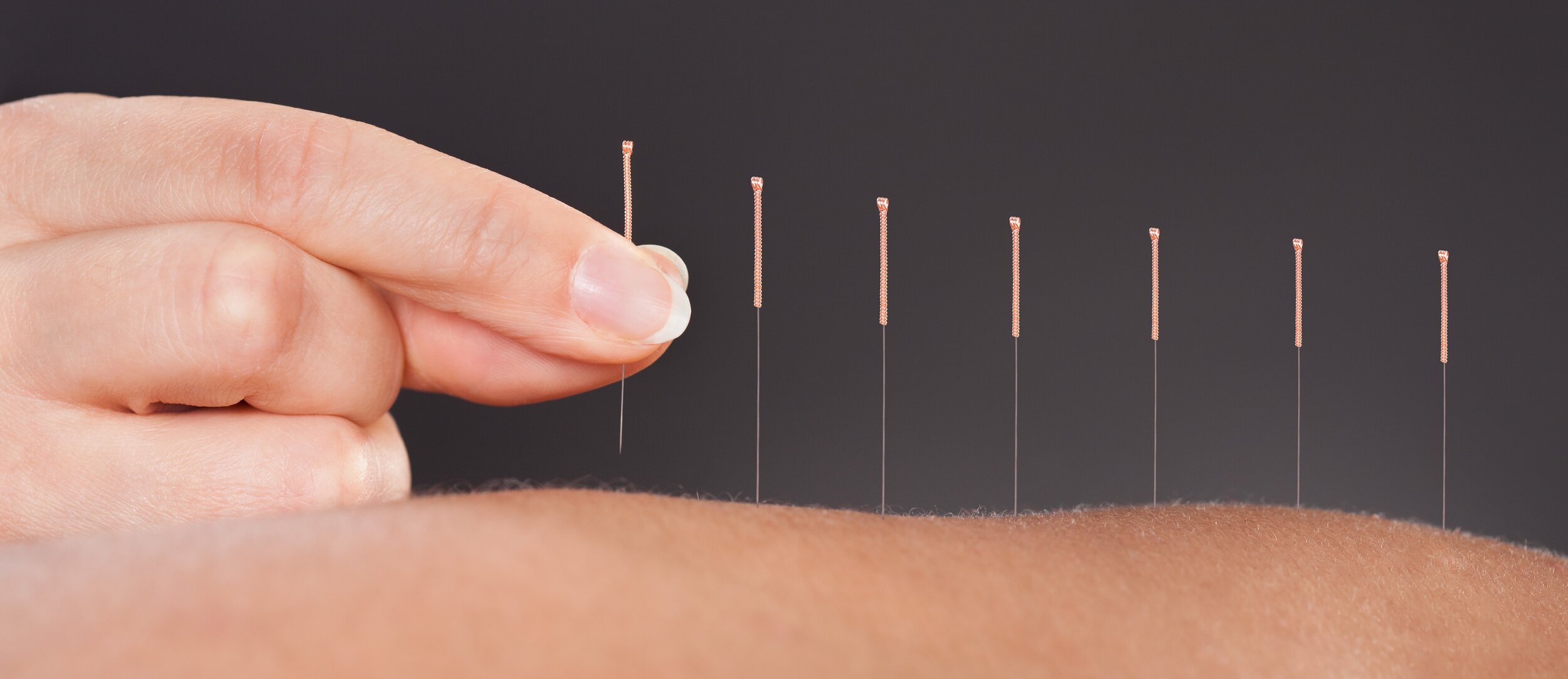
Acupuncture
Acupuncture is one of the two major tools of Chinese Medicine, the other being herbal medicine. It consists of the insertion of very fine needles into specific points on the body along pathways known as meridians.
These meridians act as a highway for the flow of information in the form of blood, nerves, fascia, hormones, etc., and connect the internal organs to the rest of the organism. When one of these pathways becomes blocked, internal pressure either builds up like a blocked pipe or becomes empty like a deflated balloon, which can then be responsible for any number of illnesses. Depending on where the blockage is, symptoms can manifest as simple joint pain all the way to mental disorders such as anxiety and depression.
Meridians travel across large portions of the body, connecting the internal organs all the way to the fingers and toes. This is why needling points on the arms and legs are often used to treat internal diseases.
By understanding the relationship of the organs to the extremities via the meridian pathways, one can then use acupuncture needles on specific points to balance the overall system.
By draining pressure where it is excessive and adding pressure where it is low, the system is able to return to homeostasis and the disease resolves.
Over the years, there have been countless studies and trials done in order to understand the efficacy of acupuncture. In an official report, Acupuncture: Review and Analysis of Reports on Controlled Clinical Trials, the World Health Organization (WHO) has listed the following symptoms, diseases and conditions that have been shown through controlled trials to be treated effectively by acupuncture:
Low back pain
Neck pain sciatica
Tennis elbow
Knee pain
Periarthritis of the shoulder
Sprains
Facial pain
Biliary colic
Anxiety
Depression
Headache
Dental pain
Tempromandibular (TMJ) dysfunction
Rheumatoid arthritis
Induction of labor
Correction of malposition of fetus
Morning sickness
Nausea and vomiting
Acute bacillary dysentery
Primary dysmenorrhea
Acute epigastralgia
Postoperative pain
Stroke
Essential hypertension
Primary hypotension
Renal colic
Leucopenia
Adverse reactions to radiation or Chemotherapy
Allergic rhinitis, including hay fever
Peptic ulcer
Acute and chronic gastritis

